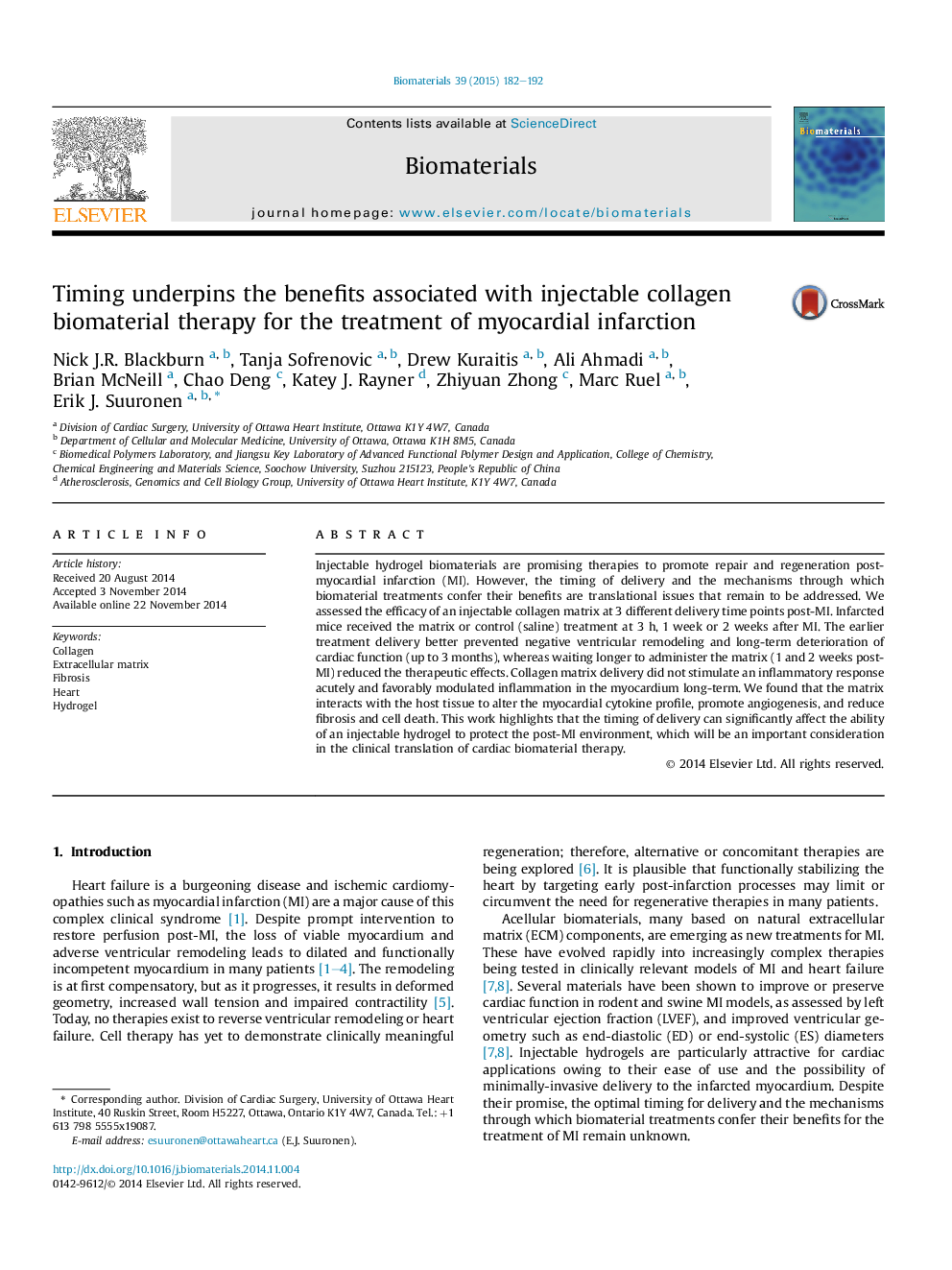| Article ID | Journal | Published Year | Pages | File Type |
|---|---|---|---|---|
| 6486355 | Biomaterials | 2015 | 11 Pages |
Abstract
Injectable hydrogel biomaterials are promising therapies to promote repair and regeneration post-myocardial infarction (MI). However, the timing of delivery and the mechanisms through which biomaterial treatments confer their benefits are translational issues that remain to be addressed. We assessed the efficacy of an injectable collagen matrix at 3 different delivery time points post-MI. Infarcted mice received the matrix or control (saline) treatment at 3Â h, 1 week or 2 weeks after MI. The earlier treatment delivery better prevented negative ventricular remodeling and long-term deterioration of cardiac function (up to 3 months), whereas waiting longer to administer the matrix (1 and 2 weeks post-MI) reduced the therapeutic effects. Collagen matrix delivery did not stimulate an inflammatory response acutely and favorably modulated inflammation in the myocardium long-term. We found that the matrix interacts with the host tissue to alter the myocardial cytokine profile, promote angiogenesis, and reduce fibrosis and cell death. This work highlights that the timing of delivery can significantly affect the ability of an injectable hydrogel to protect the post-MI environment, which will be an important consideration in the clinical translation of cardiac biomaterial therapy.
Related Topics
Physical Sciences and Engineering
Chemical Engineering
Bioengineering
Authors
Nick J.R. Blackburn, Tanja Sofrenovic, Drew Kuraitis, Ali Ahmadi, Brian McNeill, Chao Deng, Katey J. Rayner, Zhiyuan Zhong, Marc Ruel, Erik J. Suuronen,
